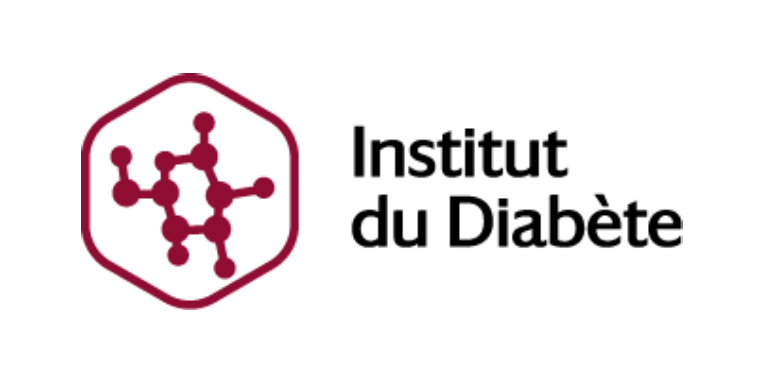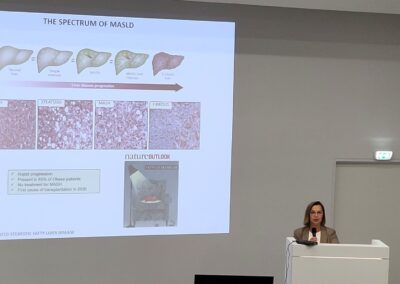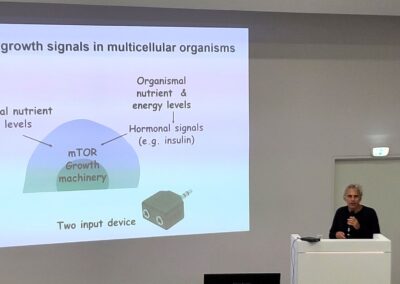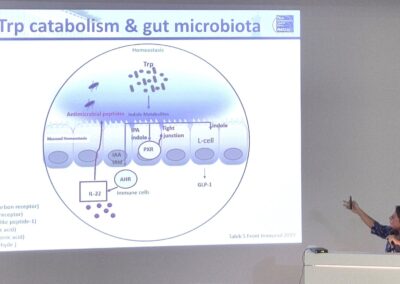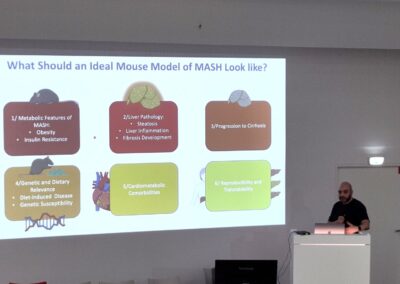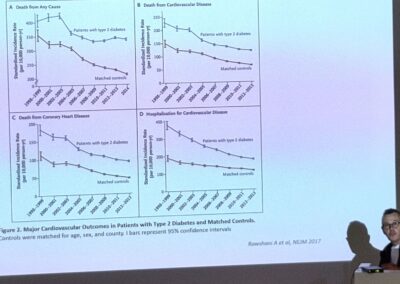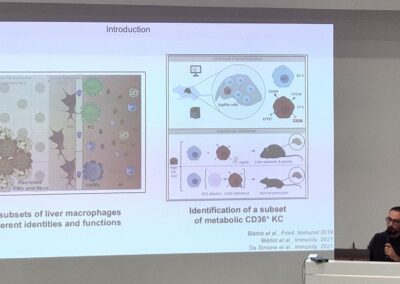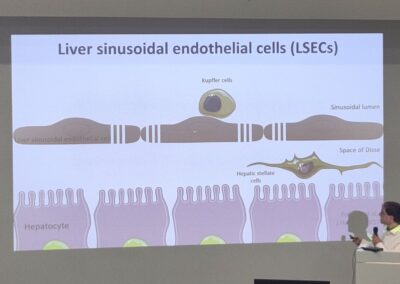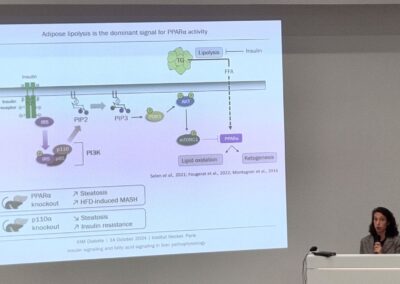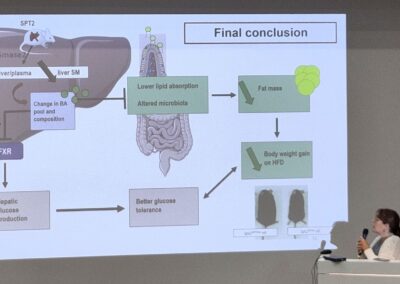On Monday, October 14th, the annual Diabetes Institute Scientific Day took place, bringing together around 100 participants at the INEM.

Opening of the Annual Scientific Day of the Diabetes Institute
Maude LE GALL – Co-Director of the institute (left)
Catherine POSTIC (right)
A day filled with high quality presentations
On the agenda of this day, we had the chance to welcome great speakers:
- Catherine Postic, team Insulin signaling, glucose sensing and glucotoxicity, Institut Cochin : Role of glucose sensors and hepatokine signaling in liver physiopathology
- Celine Cruciani team, Regulation of Glycemia by Central Nervous System, BFA : Role of the de novo ceramide synthesis pathway in hepathocytes : Effects on carbohydrate homeostasis
- Marion Regnier, team Insulin signaling, glucose sensing and glucotoxicity, Institut Cochin : Insulin signaling and fatty acid metabolism in liver pathophysiology
- Pierre-Emmanuel Rautou, team Vessels in liver diseases, CRI :
- Mario Pende, Cell growth control by nutrients, INEM : Lipid metabolism and the control of senescence program
- Jean-François Gautier, team IMMEDIAB, INEM : Prevalence of NASH and advanced fibrosis in type 2 diabetes
- Camille Bleriot, team IMMEDIAB, INEM : Decophering the role of macrophages in MASH onset
- Amine Toubal, team Immunology of Diabetes, Institut Cochin : Multi-omics analysis of an animal model of MASH: Insights from metabolomics, transcriptiomics, lipidomics and immunological profiling
- Soraya Taleb, team Immuno-metabolic mechanisms of cardiovascular diseases, PARCC : Impact of diet on microbiota and cardiometabolic diseases
Our keynote speaker: Stephan Hertzig from Helmotz Institute
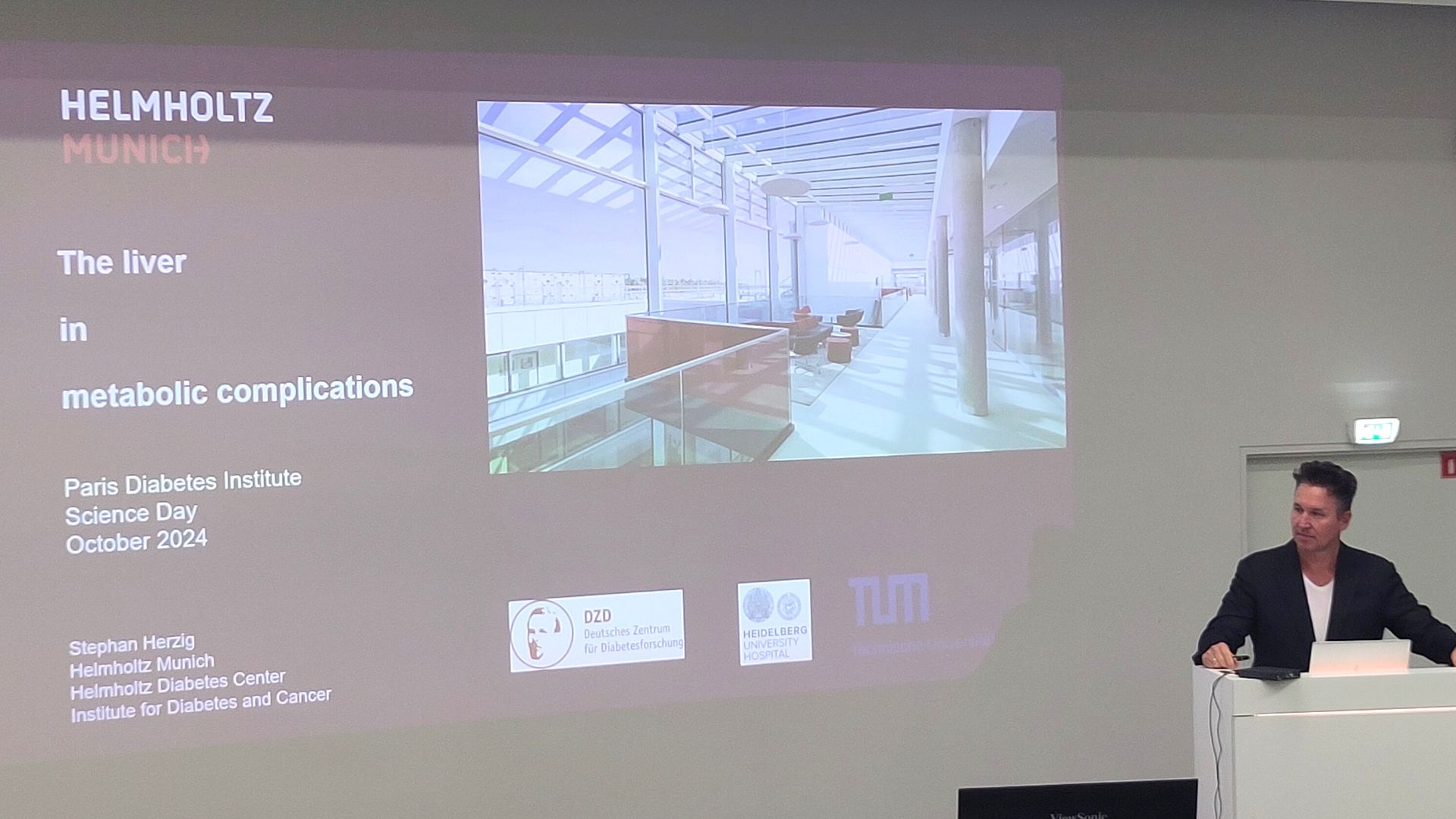
Stephan HERTZIG during the Annual Scientific day of the Diabetes Institute
We had the honour of welcoming Professor Stephan Hertzig from the Helmholtz centre in Munich, as our Keynote speaker.
In his insightful talk, Pr Stephan Herzig explored the liver’s crucial role in managing metabolic challenges, particularly during fasting-feeding transition and cancer-associated cachexia.
More precisely, he presented us the crucial role of signalling pathways between hepatocytes and macrophages, generating transcription responses helping the liver adaptation to both of these situations. These newly discovered mechanisms are currently paving the way to new treatments against metabolic diseases or cancer-associated cachexia that are currently developed in his team.
À lire aussi

Post Doctoral Position
Fully funded 2-year Post-doctoral position in the team of Dr. Ralf JOCKERS, at Institute Cochin

Postdoctoral position
Fully funded 2-year Post-doctoral position in the team of Dr. Ralf JOCKERS, at Institute Cochin (Paris, France)
